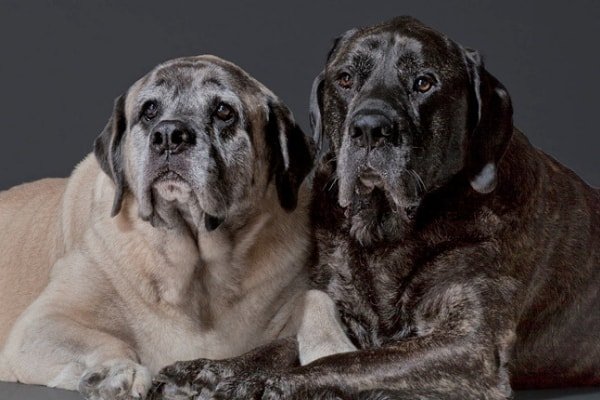
Behavioral Symptoms related to Senior Dogs
An animal’s “behavior” is the product of its genetic composition, the environment in which the animal functions and the animal’s experience as well.
The minimal behavioral welfare requires so-called “5 freedoms” and these include freedom from hunger and thirst; discomfort; pain, injury, or disease; fear and distress; and freedom to express normal behavior related to species. When these needs are not fully addressed, welfare is compromised and both health and behavior problems will arise.
Many owners do not report behavioral changes to their vet, so any behavioral changes or behavioral problems should be emphasized during the vet visit; just to ensure that the behavioral and physical health; therefore, the welfare of the pet, in general, is managed effectively and humane.
Behavioral signs for eg, house soiling, barking, growling etc.; if identified while visiting the vet clinic, your vet will determine whether there are underlying medical issues or these behaviors are normal or abnormal and whether they are manageable for the owners/family either to begin with behavioral guidance or to refer the client for further counseling.
Like with humans, the older a dog gets, the more his overall health starts to deteriorate. While age comes with less energy, it also comes with deteriorating sensory and cognitive functioning. This decline in mental and physical capabilities causes older dogs to become unpredictable and very often misbehaving.
Many age-related health problems can trigger a behavioral changing in your pet and to all of them, there is only one major and common fact: constant or intermittent, very often, excruciating chronic pain.
The most frequent of these health issues are diabetes, chronic kidney disease, liver failure, chronic constipation, prostatic disease, obesity that has huge impact on degenerative joint diseases, cataract and glaucoma causing deterioration of eyesight, cancer, or dental disease, chronic dry eyes, stones in kidneys/urinary passages, gallstones, dementia, etc.
Behavioral changes seen as a result as usually related to these issues are restlessness, phobias, memory loss, separation anxiety, and even aggression.
Restlessness
As the dog becomes older, he might have problems at night falling asleep or staying awake during the day. With age, senior dogs can also become very dependent on their owners, requiring more attention and care than in the past days. If not addressed, this can lead to restlessness or even anxiety. Restlessness is a sign of constantly present pain coming from many of the above mentioned organic/metabolic disturbances.
Phobias
With the deterioration of vision and other senses, older dogs can develop new phobias, becoming fearful of loud and unexpected noises; even being afraid of the outside world and if the owner lacks patience while dealing with this; the dog can sense such frustration by its owner and will most likely develop stronger anxiety.
Memory loss and Cognitive Dysfunction Syndrome
An inevitable behavioral problem in elderly dogs is the loss of memory, mainly noticed as he forgets how to be trained in house. Major signs confirming memory loss are that dog becomes unable to recognize familiar people or pets, stops responding on commands, does not like to be petted, has urinary/stool incontinence in front of members of the family or dog’s sleeping place.
Special place belongs to a Cognitive Dysfunction Syndrome when you observe your older dog walking around aimlessly, pacing back and forth, barking randomly, or standing in a corner looking like he’s stuck, stare into a room as if he’s forgotten where he is, bark for no apparent reason, fail to recognize familiar people, or pace around, especially in the evening.
Separation Anxiety
One of the most common. A dog can become sensitive or irritable toward new people or other dogs, especially if their owner is not around. Oftentimes, this stress occurs after the owner has left or is out of sight. Possible consequences that may arise as a result of separation anxiety are having anxiety before the owner leaves (i.e. pacing, panting, etc.), destructiveness with house soiling while the owner is gone, refusing to eat when the owner is away etc.
Aggression
Strongly related to a medical condition when suffering physical pain or discomfort. If there are no medical issues, the hostility is likely to be due to a loss of vision or hearing. If your dog shows aggression towards family members or close friends, it can be linked to changes within family everyday relations. A dog can also become furious when there are many people around at once. Often seen, an older dog will become anxious and most probably aggressive if a new animal comes into the house.
Consult your veterinarian if your pet exhibits the above mentioned behavioral changing. Your veterinarian is there to help you navigate through your pet’s process in aging the best way, preserving dog’s welfare to the end of its days. ”
This blog is written by ABVC vet Dr. Dragan Krsmanivic
